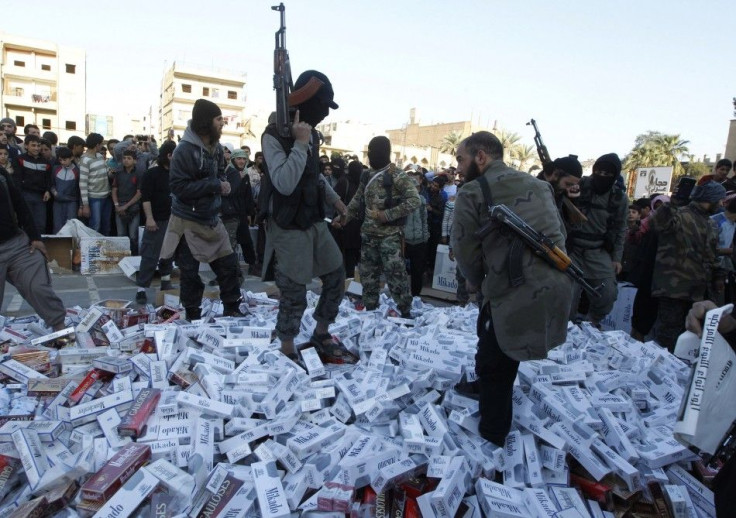ISIS Acquiring Nuclear Weapons A Game-Changer For Obama As UN Warns of Militants' Two-Year Supply of Weapons

As the conflict in the Middle East continues, the United Nations Security Council has warned that militant group Islamic State of Iraq and Syria has enough weapons and artillery to keep on fighting for two years. The council's report revealed the group has sufficient supplies of ammunition and vehicles.
The size and capacity of ISIS weaponry enables the militants to move at such a wide range with greater mobility despite its limited defences against low-flying aircraft. Even if U.S.-led coalition forces will manage to destroy ISIS vehicles and heavier weapons, they cannot control the significant implications of the group's large volume of small arms, according to the UN report.
ISIS's current stock of weapons will allow the group to keep fighting for about six months to two years which makes the group not only the most funded but also the best armed, the UN Security Council finds. The report suggested the implementation of new measures to block the militant group's access to funds and weapons. Based on the UN's assessment, ISIS has in its possession T-55 and T-72 tanks, Humvees manufactured in the U.S., machine guns, short-range anti-aircraft artillery and shoulder-mounted rockets seized from the military armory of Iraqi and Syrian forces.
The UN report recommends designing new sanctions to disrupt the flow of money into ISIS, including the call for states near ISIS-controlled territory to seize oil tanker vehicles and their contents when going in or out of their borders. Although the report does not discount the idea of ISIS having other sources of funds, the UN hopes that the new measures may raise the stakes for ISIS contacts from bringing the group's oil to the market.
To stop ISIS from acquiring more weapons, the report recommends the UN to require that no aircraft from territories held by ISIS should be allowed to land on member states. Flights to ISIS-controlled territory should be prohibited except for aircraft used in delivering humanitarian aid.
Meanwhile, U.S. President Barack Obama has vowed to send troops to fight ISIS on the ground if the group acquires nuclear weapons despite his unwavering stand to not deploy combat forces months ago. He told ABC reporters at a news conference in Brisbane, Australia, that he would change his mind and deploy ground troops if the ISIS will take possession of nuclear weapons. Previous reports have indicated that officials were not aware of ISIS currently holding a nuclear weapon.





















